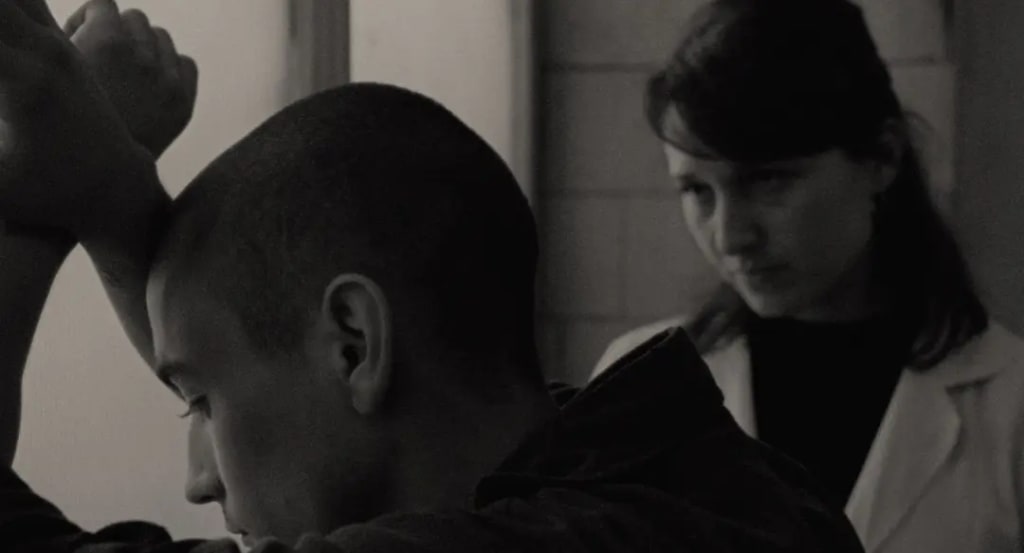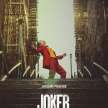
Since the film reminded me of the introduction I had seen about underground punk bands in Eastern Europe in the 1970s and 1980s, I went to search for relevant materials. I did not find the article IN my mind, but I found something else that might help me better understand some cultural phenomena mentioned in the film. The first was an article titled "Slavic,East European,and Eurasian Punk Alternative Publications:Challenges to Fugitive Materials," Written by Adams Kevin. Its focus is less on punk history itself and more on the collection and collation of relevant fugitive materials. These materials include but are not limited to manuscripts, posters, illegally distributed music tapes (as filmed in the film, for example, at the beginning, the band pasted live performance posters in the streets, and Frank secretly stuffed his own recorded music tapes into his sewn clothes for his friends to find a way to take them out) and underground music magazines. Because these works were often illegal or subject to severe distribution restrictions (Roksi, the first widespread pop rock magazine in the Soviet Union, for example, issued only six copies of each of the first three issues of the Soviet Press Law), it is difficult to find a fully preserved collection in official databases. Frank's "political psychosis" is also, to some extent, a metaphor for the reality of the underground artists of that era in the film, who are forced to stop speaking, their silence is purged, erased, and then completely lost their voice when it's all over. Whether or not these lost voices can be recovered, the howling of pain that they have missed, depends at this stage of history more on whether we listeners can recover them from those fragmentary memories.
The film was shot in Hungary, and the rough hand-held photography similar to the Budapest School was adopted, aiming to make the camera not only exist as a spectator, but participate in the event, so the camera itself is not numb, it is as angry and painful as the character. Director Gabor also mentioned in an interview that the film is actually connected to the underground punk scene -- the main character is actually a musician who has similar life experiences with the main character, and the songs in the film are also composed by some of the director's musician friends. In this respect, the film becomes a work of strong self-reference, so it can be said that even though hardcore punk music and mosh pit scenes do not occupy much space in the film, it is still an important part of the film.
Following some of the databases in the previous article, I searched for Hungarian underground punk music, but didn't find much. Two useful sites mentioned in the article are a database from the Soviet Dissident and Underground Publications Research Project at the University of Toronto, which includes "the Soviet Underground Journal Database, selected electronic editions of underground journals, illustrated timelines of the dissident movement, and activist interviews"; The other is a Cultural Opposition project funded by the European Framework programme for Research and Innovation until 2019: Understanding the Cultural Heritage of Dissent in the Former Socialist Countries (Act of Dissent, abbreviated COURAGE); Is "Europe's first digital database of private and public collections online and offline, demonstrating the survival of all forms of cultural opposition in the former socialist countries", and is relatively comprehensive, with detailed categorization and complete information. Yet even have such a large online databases, looking for the raw material is still very difficult, because most of the raw data have not been electronically, it is many focuses on underground art and subculture of independent institutions relatively small size, lack of resources to work on a large scale scanning finishing (now to find a can read most of the underground magazines, The website for the electronic version of the punk/metal fanzine is Zinelibrary.pl in Poland, and of course there are polish magazines in it, but I don't know polish or Hungarian anyway... Even these sites appeal to their followers for help in collating materials, since they are an individual organization independent of government cultural programs. Second, many magazines are produced in the form of D.I.Y. (hand-cut and pasted photos and covers, for example). Handwriting and typewritten content, etc.) are not suitable for the plane, which removes the electronic level of space and materials.
In COURAGE, can find a of the art research center in Hungary, called Artpool didn't have much to view the online web site data, but the center there are a large number of some underground artists and recording performance of the image, including belong to Hungary team should have very famous in the west had not been due attention, Nor was there a commercially successful tape of avant-garde punk band Galloping Coroners (VHK for short). It's a pretty unique band and my favorite of all the Hungarian underground punk bands I've read about so far (Iggy Pop even looks up to them). Band is composed of a group of senior intellectuals (lead singer is the study of nuclear physics, it is said that also intends to make the rocket), lyrics with consideration of universe, philosophy and the world as the theme, music with a strong acid color and type of tribal shamanism atmosphere and chanting incantations, vocals (so they are classified as shaman punk, Although the lead singer says he doesn't incorporate shamanistic elements into his music), it could be categorized as rock rock (since I can't find their pre-90s music on Spotify, I've only listened to a few mid-to-late albums). The band is still very much alive today, and their 2019 album is even more hardcore than usual, heavy and pleasant to hear. Early on, the band identified themselves more closely with progressive rock like Pink Floyd, but they have since embraced their punk identity. Their music is muddy but not dark, and the thick, totemic covers in the printmaking style give it a pagan naturalistic feel. In fact, VHK's lyrics are much less politically aggressive than those of other bands such as Aurora and CPg, but their performances have created so much turmoil that members have faced varying degrees of political persecution and control. They first in 1976, in the movie, like Frank small live in the school as the film (though perhaps with any specific Hungary underground bands have no direct contact), no show and lustration, as long as they didn't have the opportunity to once again after two years, but subsequent soon also halted by the government, And led to the band being banned in Hungary for 11 years. The 1980s were indeed the height of the Hungarian underground punk scene. According to Attila Csihar, Mayhem's current lead singer, in an interview with Metalsucks, the punk scene was pretty crazy, and it only got crazier when the riot was noticed by the police. Like at the end of the scene where Frank gets separated from his partner, Attila says: "If you called the cops, that was the worst idea you could do. 'Cause they just came, and before they ask, That was the old times. You are happy if they don't have questions, just got a punch and fuck off. If they ask a question, whatever you answer, That's the next punch. That was the old times, the Fuckin's dictator, Bro. I know it's been tough everywhere -- the U.S. has tough cops too -- but here it was fucking crazy with the old System."
The film's depiction of the circumstances that forced these artists to silence has another dimension besides the oppressive proof: the old intellectual who tried to persuade Frank to rewrite the lyrics, and the unidentified person who introduced Frank to him (probably a cultural worker in the system, I guess). In the film, we saw the Livehouse with police patrol and supervision, and Frank was brought onto the stage. For the first time, he shouted "we can't stay silent any longer", which caused great chaos. For the second time, after receiving "treatment" in the mental hospital, he could not speak a word in front of the microphone. The scene was probably a reflection of a real-life music institution officially overseen by the Soviet government, known as the Leningrad Rock Club. It supposedly began as a KGB agent's brainchild: with so many hard-to-locate underground acts scattered in obscure corners across the country, it would be easier to monitor and control them if they were given a proper stage and put under the spotlight of the secret police. The Leningrad Rock Club is one such institution. On the one hand, the KGB vetted the music and lyrics of the bands that would perform and monitored the audience, on the other hand, the agency's managers sought out good musicians and organized performances for them. The history of the whole operation is one of musician-based organizers pitting their wits against the KGB, requiring mutual concessions and understanding (often by performers to the secret police), But they also cunningly claim that some of the lyrics in question are actually criticizing the policies of the United States or countries in the Middle East. Anyway, this organization is led to the Soviet union the vigorous development of the rock and roll music, the original talent, excellent musician found a show stage, here from the folk, the new wave to metal, punk is welcome, you have to do is to a little self castration by review of sacrifice, why not do it.
Presumably Hungary has similar institutions (though I can't find specific examples in the literature), but this is no doubt just another brick in the wall of a velvet prison. Frank didn't want any of this. He didn't want to give in, and he didn't want to leave his only ally, the silent girl, with his girlfriend. The story doesn't have a specific ending, but I hope he survives like most Hungarian bands, because it's big Brother's second life. But in the midst of this Renaissance, many artists disappeared into the dust of history whipped up by the KGB. Not every talented band made it to the West like VHK did, and even Dutch politicians became fans and pressured Hungarian authorities to allow them to continue touring, and more were probably deleted without a trace, like Frank. Of course, there are more artists than ever, because it's not just Hungary's underground musicians that are suffering from this kind of oppression. Frank Deleted is an angry film, and that anger deserves to continue, along with the search for the voices that have been erased. More importantly, how many other artists and works are out there that are about to, or have already, undergone this kind of erasure? It's hard to say. So the anger will go on, and it may never need to go away.
About the Creator
JOKER
I thought my life was a tragedy. But now I realize it was a comedy






Comments
There are no comments for this story
Be the first to respond and start the conversation.